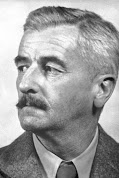He says:
Of the Adityas, I am Vishnu.
Of luminaries, the radiant Sun.
Of the winds, I am Marichi.
Of the asterisms, the Moon.
I am the Sama Veda of the Vedas.
And Indra of the gods.
Of the senses, I am Manas,
And Intelligence in living beings am I.
Of the Rudras, I am Shankara,
Of the Yakshas & Rakshasas, Kubera.
Of the Vasus, I am Pavaka,
And of the mountains, Meru am I.
Know Me among horses as
Uchchaisshravas (Seven headed white flying horse, created during Amrita Manthan);
Of lordly elephants, Airavata;
And of men, the King.
In "The Gospel of Sri Ramakrishna", (July 15, 1885), Sri Ramakrishna appraises Narendra (later Swami Vivekananda) like this:
Some are like lotuses with ten petals;
Some like lotuses with sixteen petals;
Some like lotuses with a hundred petals;
But among lotuses, Narendra is a thousand petalled one.
Other devotees may be like pots & pitchers;
But Narendra is a huge water barrel.
Others may be like pools or tanks;
But Narendra is a huge reservoir.
Among fishes, others are like minnows;
Narendra is a huge red-eyed carp.
Narendra is a very big receptacle
Which can hold many things.
Like a bamboo with a big hollow inside.
He is like a male pigeon;
If you hold it by its beak,
It breaks away from you.
So does Narendra break away from
The attraction of sense pleasures.




